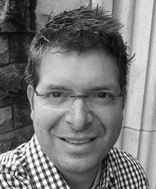A new year is upon us. In the United States, the election season has come to an end, and a new president is about to take office. In the United Kingdom, the prime minister begins her first full calendar year in office. The Philippines and Brazil have undergone political change on a grand scale. These are just a few of the countries around the globe transitioning leaders. However, in this season of change, educators everywhere must recall that much stays the same. We continue to teach, learn, and engage with students, families, communities, and our colleagues. We do not start anew as political cycles commence or fade. A history of politics and policies in the education realm remains intact and influences our work on a daily basis.
This issue of The Educational Forum does well in reminding educators about the magnitude of the task at hand. Several articles in this issue investigate the diverse strengths and needs of the students and teachers in our classrooms and schools. Whether examining preservice teachers' ability to implement culturally relevant pedagogies in rural schools (as described by Ajayi) or assisting early-career teachers in overcoming their hesitancy to scrutinize curricula or school contexts for biases related to LGBTQ subjects (as discussed by Brant), we must keep in mind that these issues have a tumultuous past around the world. A change in leadership does not wipe the slate clean for a new beginning.
In their article, White, Brown, Viator, Byrne, and Ricchezza focus on attempts to address high school students' perceptions of urban communities through a 2-week Urban Teacher Academy. This proactive approach to examining the ideas, understandings, and misperceptions of future teachers reminds us that these issues are ever-present. Educating children to become engaged citizens in our interconnected society is an enormous undertaking that constantly morphs and demands our unceasing attention.
Yet the complexity of this endeavor stretches beyond our schools' walls. Several articles acknowledge the broad context of the concerns facing students, whose experiences—whether navigating the intricate web of financial aid systems at the collegiate level (see Tichavakunda) or negotiating bullying (see Bouchard and Smith)—are often tied to challenges encountered by teachers, families, and communities. And, of course, education often enters the realm of policy making, whether policy makers have expertise in education or not. Other authors in this issue highlight a multitude of mandates handed down from typically well-intentioned policy makers while thoughtfully exploring ways that educators can make the best of these policies.
On the American front, for instance, Jaeger and Pearson examine the ways that policies relating to the Common Core State Standards and Response to Intervention—two policy-driven concepts developed independently of one another—can be integrated to support all students, especially those who struggle to read. Other politically charged ideas are addressed in this issue, too. Hébert discusses the difficulty of scaling a localized evaluation system such as the Performance Assessment for California Teachers to a national-level assessment instrument such as the edTPA. Just as contentious are the Next Generation Science Standards (NGSS). Isabelle confronts the emphasis placed on the teaching of English language arts and mathematics in elementary classrooms. Because teachers, schools, and districts are responding to other policy mechanisms, science teaching has been given short shrift. The article considers what it will take to truly meet the expectations of the NGSS, given these facts on the ground.
None of these problems can be fixed by the next head of state alone. We, as educators, need to look beyond this season of change and remember that—as was true before these election cycles—we have the expertise and experience needed to do what is right for all children. As new officials take office, engaged educators continue to have the ideas, the passion, and the capacity to make a difference in our schools. The editorial team hopes that the articles in this issue inspire thought and conversation amongst educational professionals throughout, and beyond, these changing times.
Additional information
Notes on contributors

Ryan Flessner
Dr. Ryan Flessner is an Associate Professor of Teacher Education at Butler University in Indianapolis, Indiana. Prior to his work at the university level, he taught elementary school students in Indianapolis, New York City, and Madison, Wisconsin. Dr. Flessner's teaching, research, and service interests include teacher education, elementary education, math education, practitioner inquiry, and issues of equity, diversity, and social justice.
